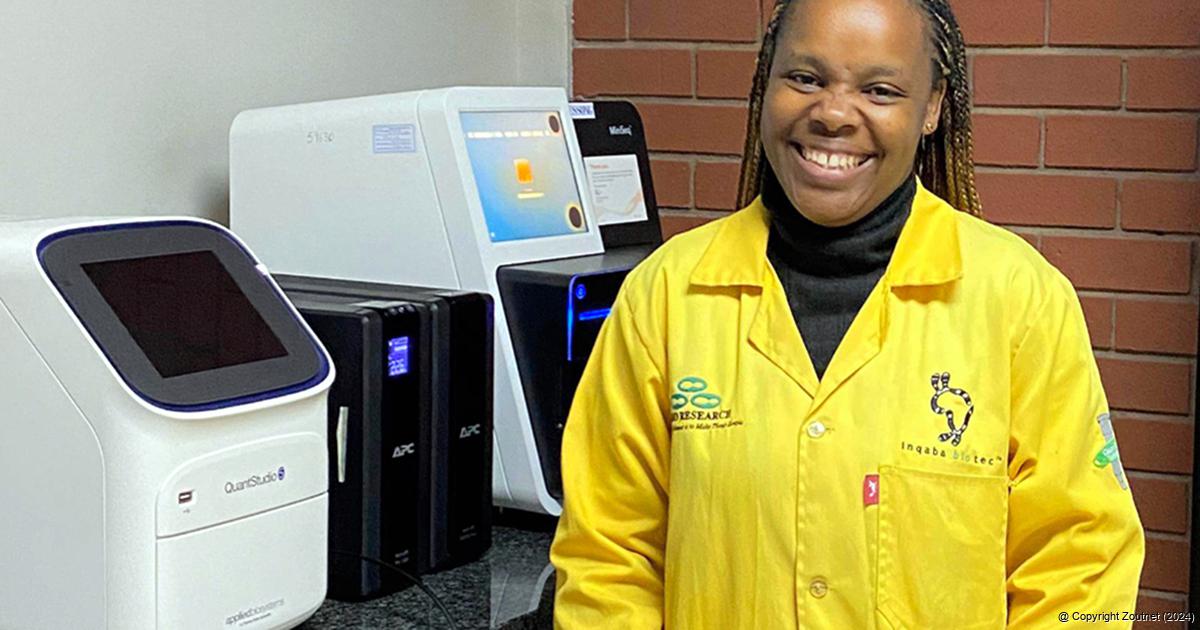

ADVERTISEMENT:

Young scientist Tendani Matamela. Photo supplied.
Univen student impresses with her research on HIV infections
News - Date: 11 August 2024
Tendani Matamela, a 25 years old master’s student and chairlady of the Department of Biochemistry and Microbiology at the University of Venda (Univen), is making waves in the scientific community with her groundbreaking research on HIV drug resistance.
From a young age, Matamela was fascinated by science and wanted to understand how life works at a microscopic level. This curiosity led the girl from Dopeni to study microbiology and biochemistry, with a focus on making a difference in her community.
“I’ve always loved science and wanted to understand how tiny microorganisms like bacteria and viruses, which we can’t see with our eyes, work and end up causing diseases,” she said.
Matamela’s motivation to focus on HIV research stems from the devastating impact of the virus, which affects millions worldwide and has no cure. South Africa, one of the countries hardest hit by HIV/AIDS, introduced the drug Dolutegravir into the standard treatment regimen in September 2019. Despite its low resistance profile, some uncharacterised mutations exist that need to be studied. Matamela’s research aims to address this gap.
“When HIV infects a person, it always finds a way to survive by changing its genetic makeup (DNA). It’s not surprising that a treatment that works today might not work tomorrow,” Tendani explained. Her research focuses on creating a plasmid with altered DNA to study these changes’ impact on resistance to Dolutegravir.
Matamela’s research findings are promising. By documenting known resistance-causing changes and focusing on unstudied ones, her team introduced these changes into a plasmid and used online software to predict their lab performance. Both the predictions and experiments were successful.
“I believe my study will help explain why and how HIV treatment can become ineffective. It will also help create better treatments and plans to fight resistance, ensuring that medications like Dolutegravir work well for a long time,” Matamela said.
Despite facing challenges, including being pregnant during her research journey, Matamela remained undeterred. “It was tough studying while feeling tired and wanting to sleep all the time. I had to repeat my research module because I couldn’t finish my experiments on time. Despite this setback, it motivated me to work harder for both my baby and myself. In the end, I achieved a distinction in the module,” she said.
Her research was conducted under the supervision of Dr. Nontokozo Daphney Matume and Prof. Pascal Obong Bessong.

Recent Articles
-

Vho Noria Mabasa and Vho Ester Sinyegwe honoured for preserving heritage
08 September 2024 By Silas Nduvheni -

Pioneer Tshivenda author honoured
08 September 2024 By Silas Nduvheni -

New Premier Hotel a testimony of what women leaders can achieve
07 September 2024 -

Seven years of promises but still no stadium at Waterval
07 September 2024
Search for a story:

ADVERTISEMENT


Maanda Bele
Maanda Bele, born and raised in Nzhelele Siloam, studied journalism at the Tshwane University of Technology.
He is passionate about current news and international affairs.
He worked as part of the Zoutnet team as an intern in 2017.
He is currently a freelance journalist specialising in news from the Vhembe district.
Email: [email protected]

ADVERTISEMENT:

